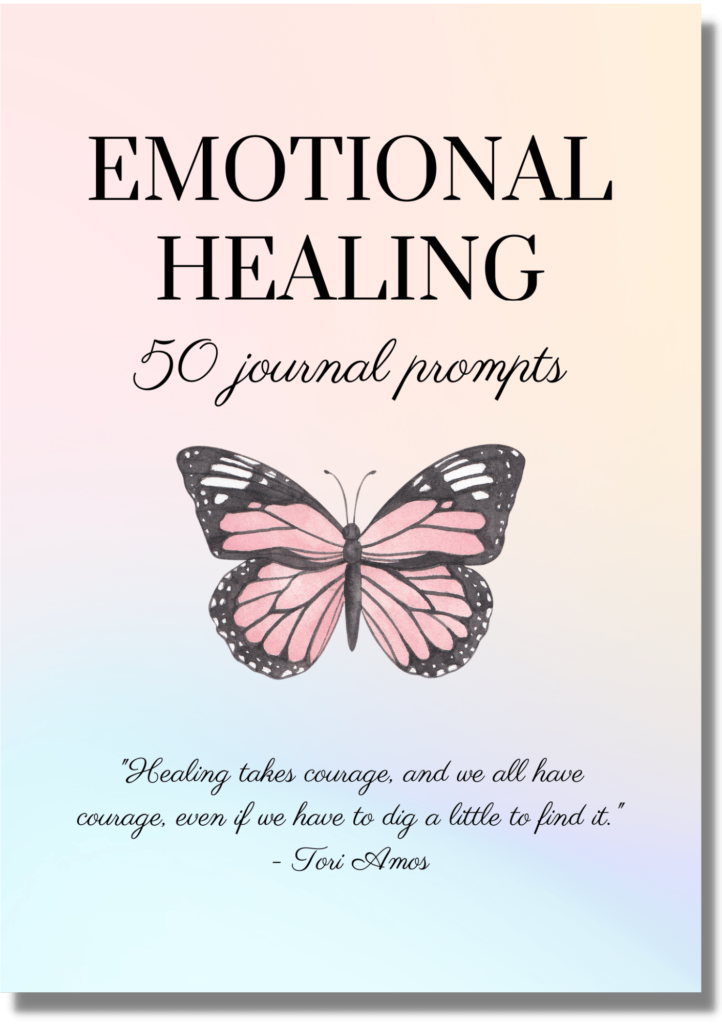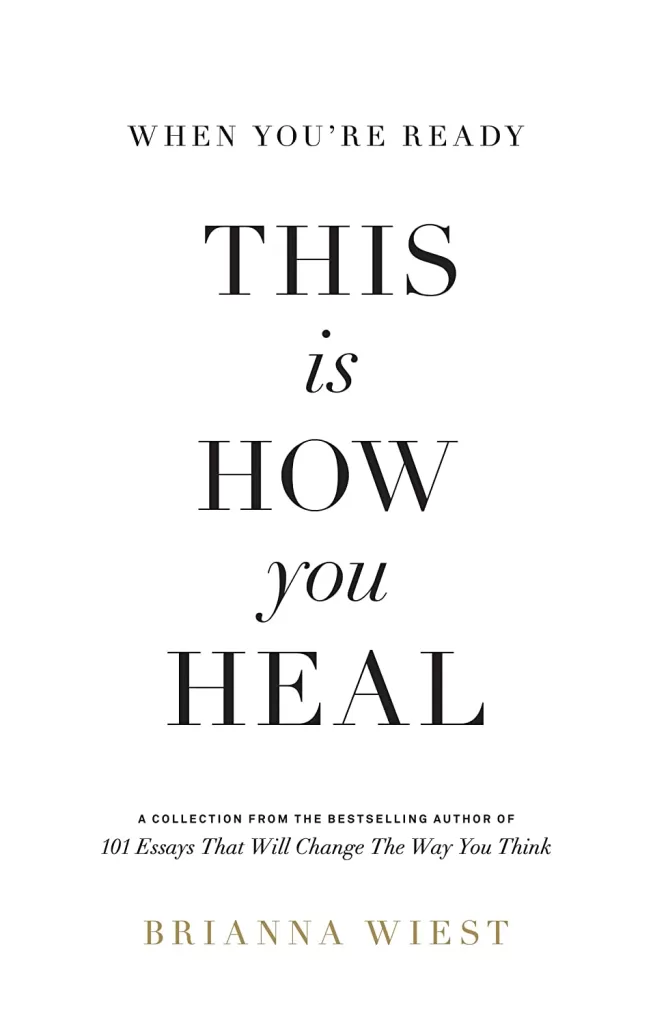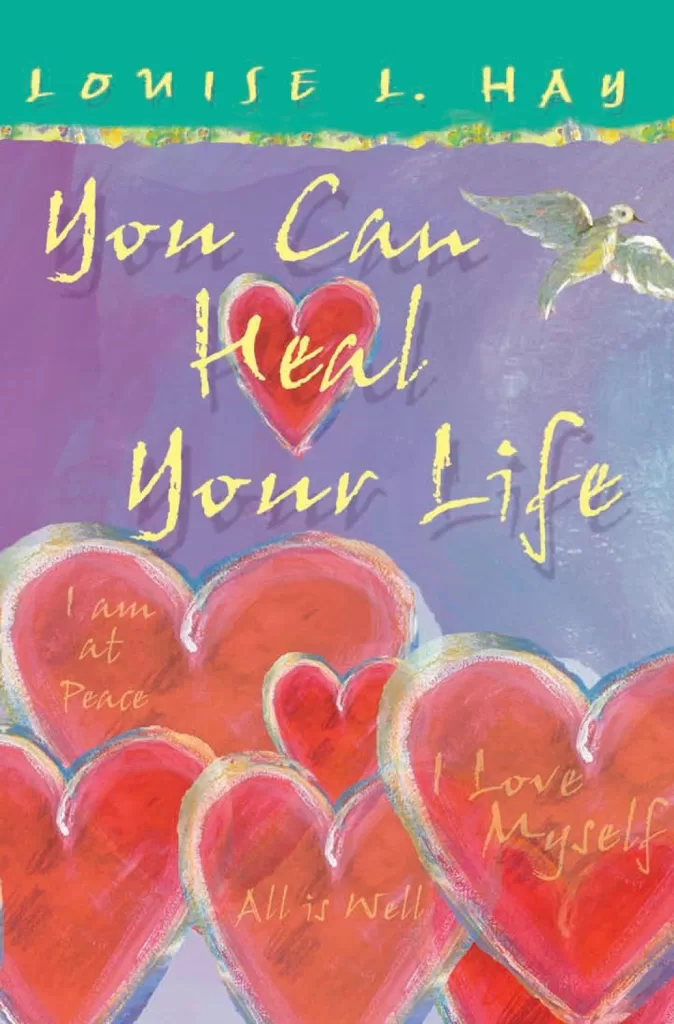Last Updated on March 9, 2024

If you have experienced anything in the past that has left you feeling hurt, disappointed, or inadequate, you are walking around with unresolved emotional problems. It may be after a traumatic or difficult experience in your life, like the loss of a loved one, illness, end of a relationship, etc. You may think you are effectively masking your emotions and that those repressed feelings don’t affect your everyday life, but let me tell you, that is not the case.
In today’s post, you’ll learn why emotional healing is crucial, the stages you will go through in the process, and the signs of emotional healing. Lastly, you’ll find ten powerful tips on how to heal yourself emotionally from any deep emotional wounds that need healing.
Why is emotional healing important?
Have you ever met an angry or rude cashier who looks like they will explode with anger at any moment? Have you dealt with a colleague who seems depressed or has sorrowful energy? Or maybe you have held back from sharing your business idea with others because you suspected that they wouldn’t take you seriously?
All of these issues are caused by unresolved emotional problems that need healing. Whether you are aware of it or not, I am willing to bet that you still carry factors that hinder your success. Unless you have a high understanding of your inner self and know how to emotionally heal yourself, you are likely to slow down potential success due to your problems.
Women usually conceal their emotional pain with sadness, irritableness, or hardening attitudes. While men usually show their pain through exaggerated toughness, anger, or superego.
It may also show up, both for men and women, as arrogance or avoiding relationships, which may cause them to get hurt again in the future.
Now, the good news is that you can heal yourself. You can completely get rid of any emotional wounds, pain, and unresolved hurt, by learning the steps to heal yourself emotionally with the right emotional healing techniques. However, this will not happen overnight. Healing old emotional wounds takes time.
5 stages of emotional healing
In a healing process, you go through different stages. The stages may vary from person to person, but in general, there are five stages.
The five stages of emotional healing include:
- Suffering – You are in denial and dishonoring your painful emotions.
- Awareness – You can name what you feel, how you feel, and why you feel a particular emotion.
- Confrontation – You confront the emotions you were avoiding and face your emotional pain.
- Expression – You express your emotions by crying if you feel sad, screaming if you feel angry, or doing whatever you need to do.
- Acceptance – Finally, you come to accept the reality of the situation and start to find ways to heal and move forward.
Signs of emotional healing
The signs of emotional healing come as a subtle change, but over time you’ll be able to look back and see how far you’ve come.
Some signs of emotional healing to look out for include:
- You start to have more positive thoughts and feel excited about future plans.
- Your health is improving and you take better care of yourself by eating healthy, moving your body, and focusing on better sleeping routines.
- You begin to step out of your comfort zone and build your self-confidence.
- You feel more energized and in a better mood.
- You understand that bad days are only temporary and that it is normal to feel sad sometimes.
- Your life seems to get better, and you are ready to take the necessary steps to create the life you want.
How long does it take to heal emotionally?
The duration of emotional healing varies greatly depending on individual circumstances and experiences. There is no fixed timeline for emotional healing as it can be influenced by factors such as the intensity of the emotional wounds, available support systems, personal resilience, and commitment to self-care.
It’s important to approach emotional healing with patience, self-compassion, and a willingness to seek professional help if needed. Remember, healing is a unique and ongoing process, and each person’s journey is different.
How to heal deep emotional wounds
Emotional healing is a process that takes time and effort. Here are some daily tips that can contribute to your emotional healing:
1. Express your emotions
Find healthy ways to express and process your emotions. It could be through talking to someone, creating art, dancing, or any creative medium that provides a sense of emotional release. Additionally, journaling can be a powerful tool for expressing and exploring your feelings in a private and introspective way.
Check out the printable emotional healing journal I created with 50 powerful prompts to begin healing deep emotional wounds!

Discover what you need to heal and how you can get there, while also learning more about yourself and past traumas that might still affect you today!
2. Practice self-compassion
Treat yourself with kindness, understanding, and patience. Be mindful of your inner dialogue and replace self-criticism with self-compassionate thoughts. Remind yourself that it’s okay to have difficult emotions and that you deserve care and support.
3. Engage in self-care activities
Dedicate time each day to activities that bring you joy, relaxation, and a sense of well-being. It could be anything from reading a book, taking a warm bath, listening to music, or engaging in a hobby that you love. Self-care activities can help you recharge and nurture yourself emotionally.
See also: 15 best self-care ideas for your mind, body & spirit
4. Set boundaries
Establishing clear boundaries in your relationships is crucial for your emotional well-being. Learn to identify your limits and communicate them assertively. Saying “no” when necessary helps prevent emotional exhaustion and protects your mental health.
5. Practice forgiveness
Forgiveness is a personal journey that can contribute to emotional healing. It involves letting go of resentment and anger towards those who have caused you pain. Forgiveness is not about condoning or forgetting what happened, but freeing yourself from the burden of carrying negative emotions.
See also: How to forgive and stop holding grudges
6. Seek support
Reach out to a support system that includes understanding friends, family members, or a therapist. Surrounding yourself with compassionate and empathetic individuals can provide validation, guidance, and a safe space to share your thoughts and feelings.
7. Focus on gratitude
Incorporate gratitude into your daily routine by consciously acknowledging and appreciating the positive aspects of your life. It could be as simple as recognizing small moments of joy, expressing gratitude for loved ones, or appreciating the beauty of nature. Gratitude helps shift your focus towards the positive, fostering emotional well-being.
See also:
8. Engage in self-reflection
Allocate regular time for introspection and self-reflection. Create a quiet and peaceful environment where you can tune in to your emotions, thoughts, and experiences. Self-reflection promotes self-awareness, allowing you to identify triggers, patterns, and areas that require healing.
9. Engage in positive affirmations
Positive affirmations are powerful statements that challenge negative self-talk and reinforce positive beliefs. Repeat affirmations such as “I am worthy of love and healing” or “I am strong and capable of overcoming challenges.” By affirming these positive messages, you can gradually shift your mindset and cultivate self-compassion.
See also: 30 positive affirmations for emotional healing
10. Practice patience and acceptance
Understand that emotional healing is a process that takes time and effort. Be patient with yourself and embrace the ups and downs along the way. Celebrate small victories and milestones in your healing journey, and accept that setbacks are natural and part of the overall process.
Remember, emotional healing is a personal and unique process. It’s important to find what works best for you and adapt these tips to fit your individual needs and circumstances. If you’re struggling significantly, consider seeking professional help from a therapist or counselor who can provide specialized guidance.
Books for Emotional Healing



If you enjoyed this post on how to heal yourself emotionally, I would be very grateful if you spread the word by sharing it on Twitter, Facebook, or Pinterest! Thank you!❤️
SEE ALSO:
- How to heal your inner child
- How to heal from trauma
- 5 emotional healing techniques to release emotions
📌 PIN THIS POST FOR LATER


Hello, my name is Sara and I am the founder of Spiritvibez, I’m here to guide you on your spiritual journey toward healing, growth, and self-discovery. I believe that true transformation occurs when the mind, body, and spirit are aligned and working in harmony. Through Spiritvibez, I hope to inspire and empower you to deepen your spiritual practice, embrace your authentic self, and begin living your best life.

That’s a good one.
I’m happy to hear that!
This is such great information! I needed to read this today, thank you!
The post found you at the moment you needed it the most! Good to hear you liked it!
The last step though…Great information thank you for sharing!!
No problem, I’m happy to hear you found it useful!
Happy to have found this opportunity to be involved with you.im inspired as would like to have contacts with you as I’m embarking in this field of healing